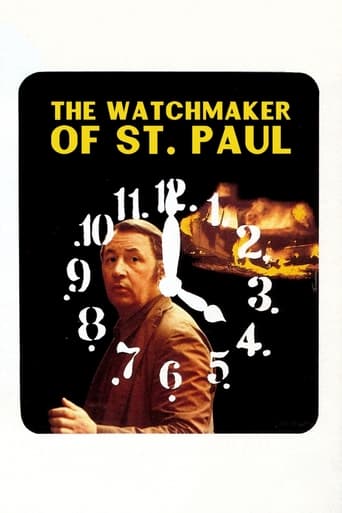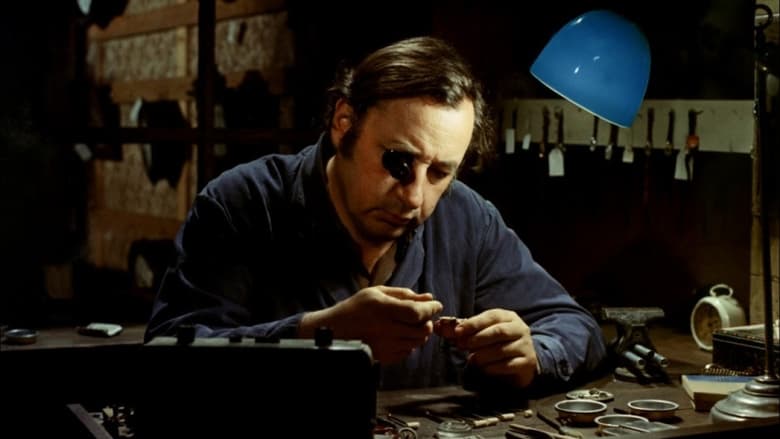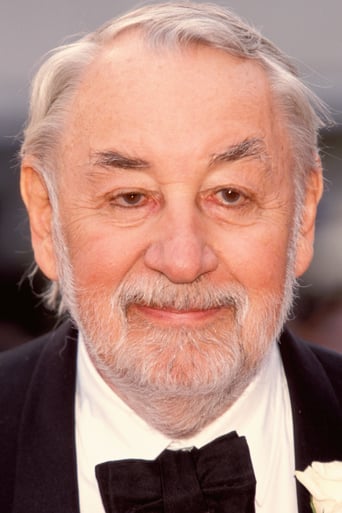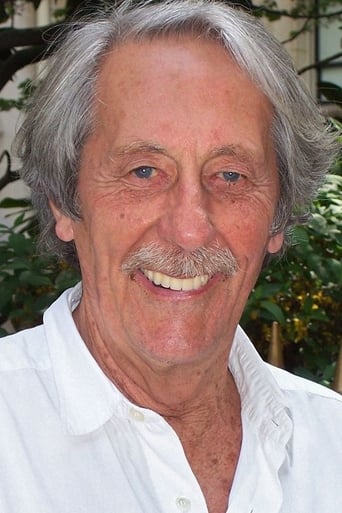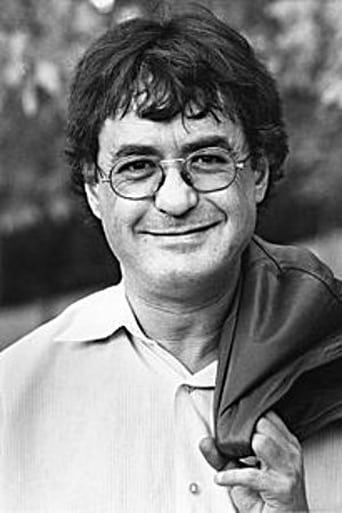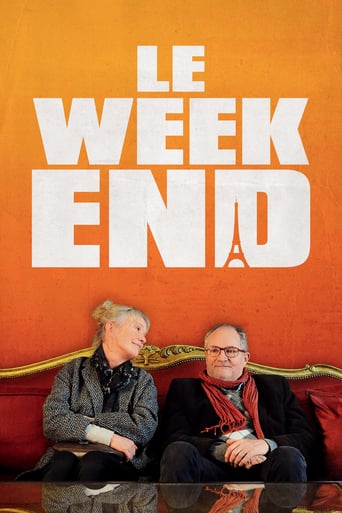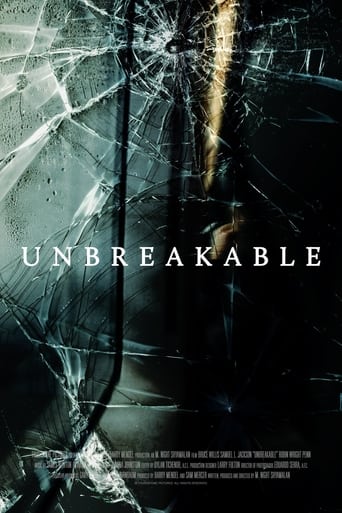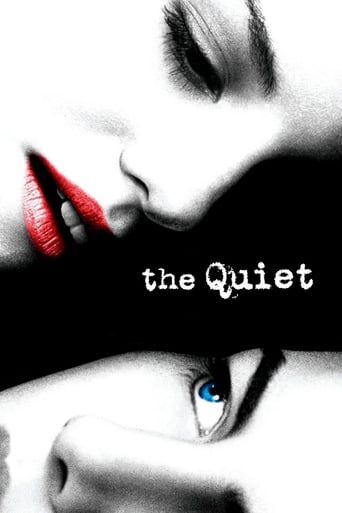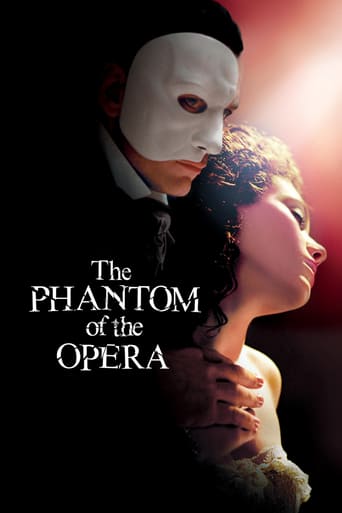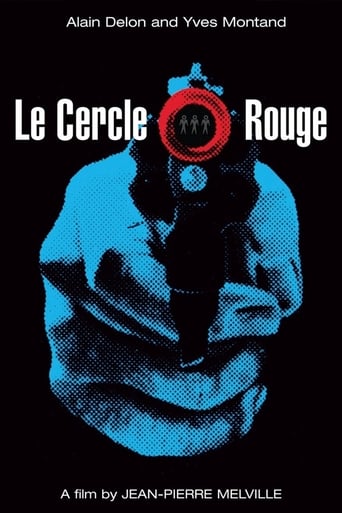The Watchmaker of St. Paul (1974)
Lyons, France. Michel Descombes is a watchmaker who lives alone with his teenage son Bernard. When the police visit and informs him that Bernard killed a man and is on the run with a girl, Michel realizes that he knew far less about his son than he thought .
Watch Trailer
Free Trial Channels
Cast


Similar titles
Reviews
Purely Joyful Movie!
I like Black Panther, but I didn't like this movie.
It really made me laugh, but for some moments I was tearing up because I could relate so much.
It is interesting even when nothing much happens, which is for most of its 3-hour running time. Read full review
"Your son killed a man...We don't know why." The cause of the movie is the murder. The purpose of the movie is to look closely at Michel Descombes, the father. The Clockmaker (l'Horloger de Saint-Paul) is not a murder mystery. Were it not for the skills of Bertrand Tavernier and his frequent lead actor, Philippe Noiret, we might be in for a long, introspective slog full of what it means to be a solitary human being. With these two, and with Jean Rochefort as Inspector Guilboud, we have a movie that explores loneliness, friendship and, eventually, understanding with a good deal of depth and style. Descombes is a self-contained man, friendly enough, probably what he thought of as a reasonably good parent, but not an especially happy man. "You're a widower?" a policeman asks. "No, not exactly," he says. "We were already separated. I guess I am a widower. I was just as miserable as one." Descombes struggles to understand his young son. Inspector Guilboud struggles to understand the son's motive, and then to understand the father. The more they learn, however, the more the fact of the matter stays the same; the son murdered a man. "I killed him because he was filth," Bernard Descombes eventually declares. Guilboud finds some empathy with Descombes. Even so, Descombes' son will be caught. "France is a funny country," Guilboud says. "Fifty-million inhabitants, twenty million informants." Descombes' son seems to represent more than just another murderer to Guilboud, a man with his own issues. He may see something of himself in Descombes. It is Descombes, however, who has to make the hardest journey, to try to understand who is son is. The Clockmaker turns out to be one of the most interesting of the collaborations between Tavernier and Noiret, even with the now dull political subtext of complacent and suffocating French society. Still, the movie was made in 1974, an uneasy period. The movie finds itself, however, and the last twenty minutes are powerful minutes. "I stand by my son...in complete solidarity." Without Noiret, this movie would not have worked at all well, in my opinion. With Noiret and Rochefort, it works very well. Other films by Tavernier and starring Noiret that I recommend with enthusiasm include Coup de Torchon - Criterion Collection (a marvelous black comedy), Revenge of the Musketeers and Life and Nothing But.
The Clockmaker is a technically well-crafted precision endeavor in direction, writing, and acting. Director Bertrand Tavernier fashions a subtle, conservative character study asserted into the framework of a crime story, a study of an aging, middle-class clockmaker with a downcast disposition, played, or rather inhabited, by Philippe Noiret. This commonplace man is stunned out of his sluggishness when he finds out that his only son has been arrested for murder.What is poignant about this story, and what improves the usually dormant drama of a crime film, is that Noiret lives quietly, alone with his son, who is almost grown up. In other words, his son is his whole tranquil life. Yet, when a detective played by mulishly tenacious Jean Rochefort asks him for help with the case, Noiret grasps how little he knows about his son, and struggles with his feeling that he is unable to blame him.The film opens on Noiret having a night out, when his friends crack wise on the elections, the leftists, a protest rally, and the death penalty. He has fun this night. The next day two policemen come to his shop and rummage around his adjoining apartment. They particularly search his son's room before taking him to the police station where Rochefort tells him his son is wanted for murder of a security guard at the place where his girlfriend was fired, and has not been apprehended. There was even an eyewitness.Tavernier puts Noiret's character through a motley crew of odd dramatic angles aside from just the press, who are of course just interested in ratings, but also tangents to the main thread of the film like right-wing hooligans who vandalize his window and two girls who confirm how vile the murdered guard was to women. The skillful essence of the film is in the abstractness of it, giving us impressions of how much his relationship with his son means to him, and how bewildered he is that he has no idea what to do to help his son, such as in his transit back home from the precinct and can't stand without feeling ill and has to ask a passenger for his seat.The film is not hard-hitting enough to be great, but it serves its locale with an authentic atmosphere. The story itself, no matter how well it poignantly portrays a world in miniature, is nevertheless very slight. On the whole, The Clockmaker is a dramatic exercise. As many other French films from the 1960s and '70s were, it is less about telling the story and more about technique. It doesn't compare to the boisterousness and self-consciousness of most of the New Wave films of that time, and in fact is a particularly subtle film. It is essentially a film that says of film-making, "Yes, less is more."
Tavernier's treatment of Simenon takes us back to the veterans time,all those who made great adaptations just before the nouvelle vague and even during its heyday:"la mort de Belle" ,Edouard Molinaro's most perfect flick was made in 1963,at about the same time as François Truffault's "la peau douce",whose Simenon adaptation would be forgotten if it were not Truffault .Molinaro's "la mort de Belle" and Henry Decoin's "les inconnus dans la maison"have a lot in common with "l'horloger de Saint-Paul;all these works deal with incommunicability,between people of the same family.For instance,in "les inconnus dans la maison" ,a fallen alcoholic lawyer does not care about his daughter anymore and one day very bad things happen;in "la mort de Belle" a high school teacher sees his life torn apart when he's a suspect when a young girl dies and even his wife who thinks she knows him well has her doubts .Tavernier's first movie was not that much innovative -as works to come would be- as derivative.However ,it's a very commendable work,because of Philippe Noiret's sensational portrayal of a peaceful man ,who is confronted with tragedy when his son kills a b.... .Tavernier's science of pacing a movie already shines:the son only appears in the last quarter of the movie and during at least 15 minutes,the only words he says to dad are "bonjour papa" ;little by little,we feel that father and son stand together ,but they do not try to strike back ,to find alibis ,to avoid the punishment.In a grand gesture,Tavernier does not even film the trial!A terse comment lets us know about the sentence.The characters -the father ,the son and even the girlfriend (Christine Pascal)the b... raped - remain opaque,their motives remain obscure Liliane ,the son's lover has not a single line to say.We will never know why the son and the father were estranged -the scene with the boy's old nanny remains vague.During the last scenes looks matter more than words and when they start talking again,the son concludes: -and what a place(a noisy visiting room) for the first conversation in years!- "we can hear ourselves if we really want to!" Unlike Tavernier's follow-up "le juge et l'assassin" which was Tavernier's first perfect work,"l'horloger de Saint-Paul' does not avoid some post-68 clichés that were poisoning the French cinema of the seventies:the bedroom full of "revolutionary " posters,the bad cops-the conversation with detective Jean Rochefort in the train- ,the all-things -political which the hero fortunately refuse .It's minor quibble.Considering all the important movies Tavernier would produce in the wake of 'l'horloger" ,it's almost even irrelevant.No other director has shown so many qualities in the last thirty years.
In spite of watching that movie for the sake of great director Bertrand Tavernier, I came across a purely eccentric and impressive masterpiece. Philipe Noiret ,my favorite actor in il Postino and Cinemo Paradiso, performs his boundary limits. Bertrand Tavernier's left glass a little ruins films from the political concern. However this does not reduce the total film quality. Tavernier's camera focuses on an ordinary widow clockmaker surrounding with the high tension political turmoil in Lyon early 1970s. Noiret's son is accused of a factory boss murder and runaway. Between police and his son, Noiret tries to find the real reason that led the murder. But this is a neither action nor criminal movie. Pure relationship between father and son is the core theme of the film. All things considered I strongly recommend this impressive and emotional movie for people to have some idea about the political atmosphere of early 1970s.

